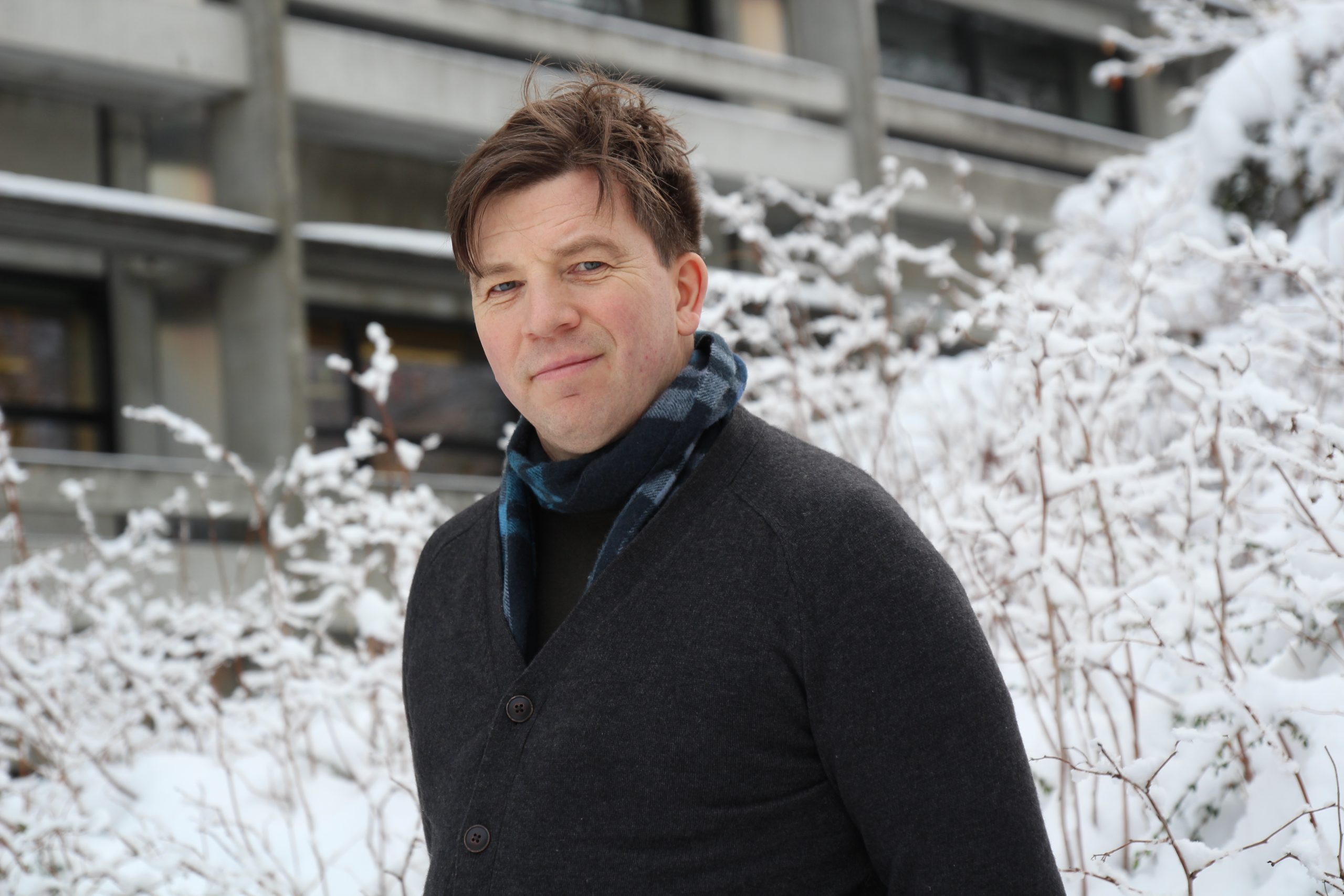Science Diplomacy has been a central part of Arctic relations for many decades, with the 8 Arctic states working together, even during the Cold War. After Russia’s invasion of Ukraine, the Russo-western relationship has understandably entered an ice-cold phase. What are the foreseeable effects of freezing Science Diplomacy in the Arctic? This is the subject of a report commissioned by the AE-Bergen Hub.

Political scientist Ole Øvretveit on a wintry, if not exactly Arctic day in Bergen.
Political scientist Ole Øvretveit will be writing the report, based on interviews with arctic experts, scientists, and political analysts. Arctic relations will also be the topic of a side event during the Arctic Frontiers conference, titled “The Future of Arctic Science and Science Diplomacy”, taking place on Thursday 2nd February. The event is organised by the AE-Bergen Hub, with co-organisers University of Bergen, Norwegian Polar Institute (NPI), The Norwegian Academy of Science and Letters (DNVA) and University of Tromsø as co-organisers.
– “The new Russian openness in the 1990’s, particularly in the wake of Gorbachev’s Murmansk speech, opened new areas for Science Diplomacy in the Arctic. Even though the field of Science Diplomacy never cooled completely during the Cold War, new possibilities opened in the 1990’s, especially in areas like environment and climate. We saw significant rewards from sharing scientific data. Even though other effects of the war in Ukraine are more catastrophic, it is worthwhile investigating the effects of halting this collaboration,” Øvretveit says.
Øvretveit has been interviewing experts on the Arctic for the upcoming report over the last few months and is now in the process of evaluating his findings.
– “I hope that the report will be useful for readers interested in the Arctic, not necessarily just experts on the Arctic. Hopefully, the report will also shed some light on how reduced international Arctic science collaboration has affected our understanding of climate change in the Arctic,” Øvretveit says.
